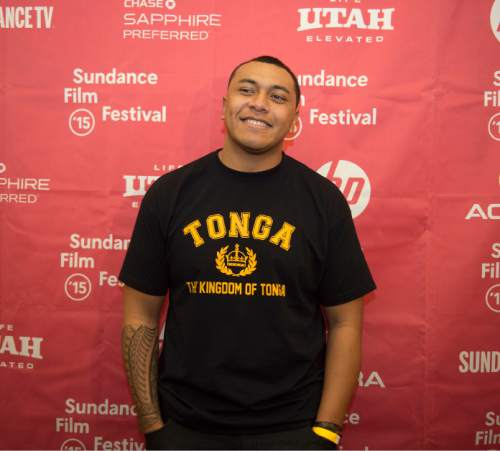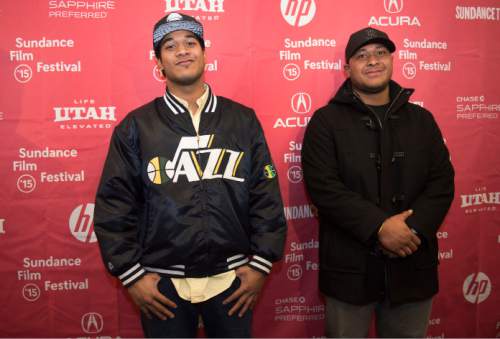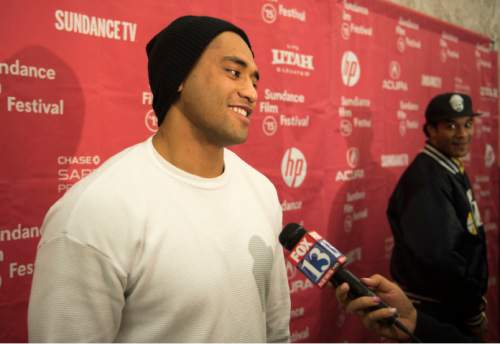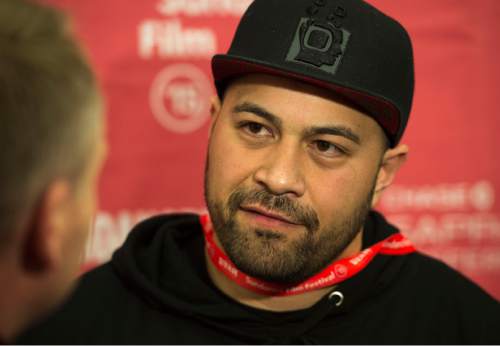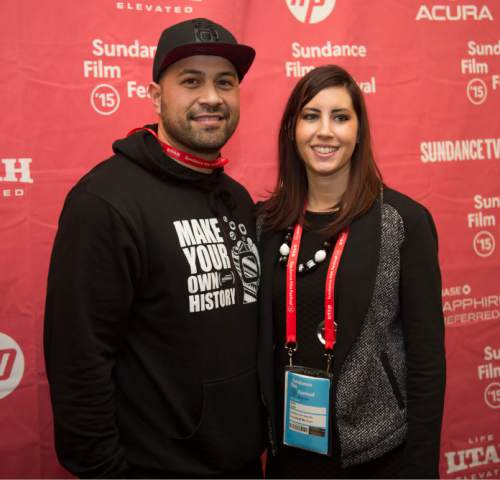This is an archived article that was published on sltrib.com in 2016, and information in the article may be outdated. It is provided only for personal research purposes and may not be reprinted.
The made-in-Utah documentary "In Football We Trust" airs Monday on PBS (9 p.m., KUED-Ch. 7), and a few things have changed since it was completed a couple of years ago. And not just for the four Polynesian football players followed in the film.
The film looks at the Polynesian/Mormon/football culture in Utah, which reached a new level recently when BYU hired a new football coach. The Cougars made history when they named Kalani Sitake their head coach; he's the first Tongan ever to hold that position at a Division 1 college.
Tony Vainuku, who directed the documentary, said it's a big deal to the Polynesian community.
"I think this shows progression for Polynesians in the sport of football," he said. "We aren't just players, we can and will continue to advance in the sport on all levels of the game.
"I also think it is a smart move on BYU's part, and makes the recruiters' jobs a lot easier when recruiting Polynesian athletes."
That includes those who, like the players portrayed in "In Football We Trust," play high school football here in Utah.
"Absolutely," Vainuku said. "Having a head coach that you can personally identify with helps. It will definitely be a factor for parents and athletes when considering their options."
Almost exactly one year ago, his film premiered at the Sundance Film Festival. It follows four teenagers — Harvey Langi, Leva Bloomfield, Vita Bloomfield and Fihi Kaufusi — as they try to ride the so-called "Polynesian Pipeline" from high school to college to the NFL.
Vainuku and producer/co-director Erika Cohn were there for five years as the boys dealt with family, pressure, gangs, crime and their own mistakes. And there are plenty of mistakes.
The four young men profiled in the film are all members of The Church of Jesus Christ of Latter-day Saints, and that's a big part of the story — it's not just about Polynesian culture, but Mormon Polynesian culture.
And the story has continued since filming stopped. Not just for Langi, Kaufusi and the Bloomfields, but for the Polynesian community.
The hiring of Sitake, who was born in Tonga and immigrated to the United States with his family when he was a child, is a "huge step forward," Vainuku said.
"I think Polynesian athletes and athletes in general are typecast into the positions that they play, and the limitations of what they are capable of outside of football," said the filmmaker. "So to have a head coach opens up the possibilities for young Polynesian athletes to not only be viewed this way, but for them to aspire to be more than just a player."
"In Football We Trust" isn't new to many here in Utah, but it's new to PBS' national audience. And it will be seen by many more people in one night than have seen it in all the theater screenings to date.
It's a good film. It deserves to be seen.
Scott D. Pierce covers television for The Salt Lake Tribune . Email him at spierce@sltrib.com; follow him on Twitter @ScottDPierce.


